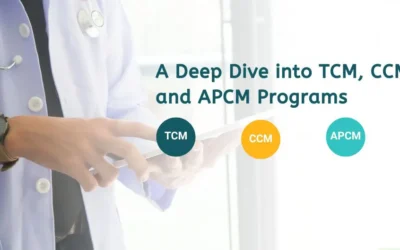
How Technology is Revolutionizing Rural Healthcare Through CCM and RPM
The rural populations face higher risks from cardiovascular disease events. The study discovered that locations lacking cardiologists experienced a 31% elevated risk index together with an increased number of risk factors and elevated mortality statistics.
Rural healthcare, like all healthcare systems, requires an increase in medical personnel and better service accessibility beyond cardiology. A doctor shortage in America has been recognized for many years as it restricts medical care availability to millions of patients. Medical reports currently demonstrate the negative effects that result from doctor shortages.
There’s no easy solution to the problem, but the good news is that virtual care can help.
Enhancing Rural Healthcare Access Through CCM and RPM
Through chronic care management (CCM) and remote patient monitoring (RPM), healthcare providers have a practical method to track patient health conditions remotely, thus reducing care gaps. The programs reduce practice staff’s chronic care management workload since they work at their maximum capacity. Chronic condition patients now need fewer in-person check-ups because remote monitoring allows ongoing medical surveillance. Medical staff obtain increased personal appointment time with patients which leads to better healthcare access for everyone.
See how the combination of CCM and RPM serves as a solution to enhance patient outcomes and healthcare accessibility among rural residents and patients without medical providers.
- Scheduled Monthly Calls– Every month patients interact with care coordinators through telephone calls to check on their adherence to care plans and answer their questions.
- Monitoring Vital Signs – Through RPM patients get home-monitoring devices that enable providers to track blood pressure alongside blood sugar and oxygen levels and other vital signs.
- Medication Management – The work of care coordinators helps physicians determine necessary medicine adjustments by verifying patient medication adherence.
- Early Detection of Symptoms – Regular patient health and vital updates from CCM and RPM systems enable doctors to spot early changes in patient conditions. Care coordinators follow established criteria for escalation which enables doctors to receive instant alerts about concerning situations.
- Fewer Hospitalizations and ED Visits – The lack of regular preventive care from a doctor leads patients to experience more hospital visits. The combination of CCM and RPM detects medical problems at early stages thus decreasing hospitalization frequencies. The programs prevent ED visits when patients do not recognize changes in their health status.
Let’s look at this example:
The patient Joe received two medical diagnoses which include diabetes and high blood pressure. The small rural community where Joe resides lacks medical facilities such as doctor’s offices. Visiting a doctor requires him to drive 45 minutes into the city therefore he avoids medical appointments as he should. The concern of Joe’s wife arises because he shows signs of decreased energy levels and rapid breathing.
Problem: Early indications of heart disease show themselves through Joe’s current symptoms. His health condition remains at risk of developing into a heart attack because he avoids medical check-ups.
How CCM and RPM Create Impactful Change: The partnership between Dr. Joe’s doctor and a CCM and RPM provider will enable him to obtain devices for recording vital measurements at home. Through the monitoring system, the doctor can track all vital records which allows for simple detection of changes in his health status. A care coordinator contacts Joe through phone calls each month to check his health status and validate his medication compliance while addressing any questions he has. The care coordinator can notify Joe’s doctor about his current symptoms so the doctor can book an appointment.
Gen By Gen Health's turn-key CCM/RPM solutions ensure compliance and health literacy – improving patient satisfaction and outcomes, increasing revenue, and decreasing staff workload.
To get in touch call us right now at (908)-864-0098 to learn more about our CCM services or you can also book a 30 min free consultation.
You may also like
The Power of Patient Engagement in Driving Better Outcomes
Using patient engagement strategies requires intentional action, but the benefits are significant. People engaged in their care usually follow care plans, control their chronic health problems well, and stay in touch with their doctors. When you start focusing on...
Advance Primary Care Management (APCM) and Who Can Bill For It
Advanced Primary Care Management (APCM), which started in 2025, is the latest care management program from CMS. Unlike older care management plans, it supports every Medicare beneficiary, irrespective of how many chronic conditions they have. As APCM is just starting,...
A Deep Dive into TCM, CCM, and APCM Programs
Transitional Care Management (TCM) is a service that allows Medicare to pay for help given to a person transitioning from a hospital to their home. TCM strives to prevent patients from being readmitted in the first 30 days after they leave the hospital. At this point,...



